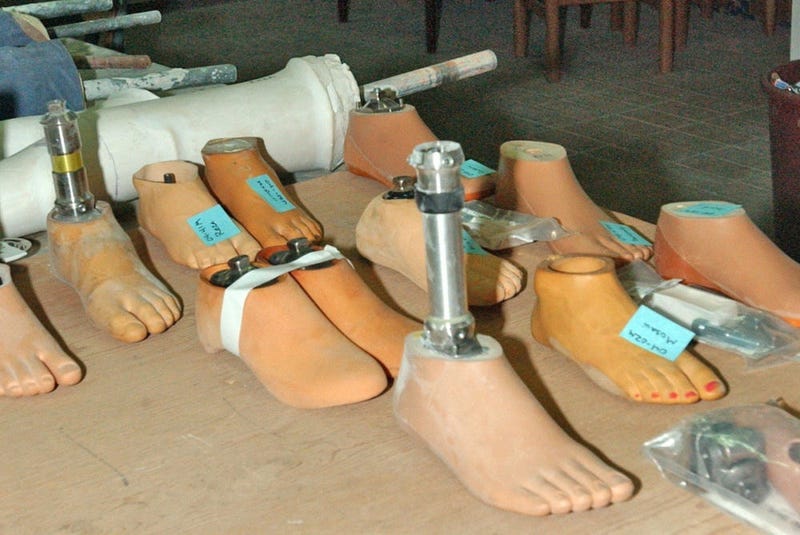
First Jerry Holliman had his prosthetic legs. Then he didn’t. Now, he has them again.
Holliman, 69, who served with the Army in both Vietnam and Iraq, told The Clarion-Ledger that his prosthetic legs were repossessed a couple of days before Christmas after the Department of Veterans Affairs wouldn’t cover their cost.
"Medicare did not send me to Vietnam," Holliman told the Ledger.
"I was sent there by my country...with the understanding that if something bad happened to me, that it would be covered by the VA."
Holliman received Bronze Stars for his service in both Vietnam and Iraq. According to the newspaper, Holliman got his prosthetics in August from the Hanger Company. Holliman said the VA would not cover the cost of the prosthetics while Medicare said a copay would be necessary.
Holliman told the Ledger that he did not want to pay the copay because he expected the VA would ultimately cover the cost.
"This is their responsibility," he told the paper.
But VA spokesperson Matthew Gowan told Newsweek those claims were "highly misleading."
"VA's Prosthetic & Sensory Aids Service, which also has more than 600 local contracts with accredited orthotic and prosthetic providers, stands ready to deliver comprehensive support to optimize health and independence of our veterans," he said. "If eligible veterans do not wish to take advantage of these services, VA is unable to intervene and correct issues arising with personal purchases."
According to Holliman, he was exposed to Agent Orange while in Vietnam and has survived three bouts with cancer.
However, it was complications from diabetes that took his legs. He lost his right leg in 2018 and his left leg in 2019. Holliman received his prosthetics from Hanger in August and was in rehabilitation at the Veterans Home in Collins, Mississippi on Dec. 23 when a Hanger employee came to adjust the legs on Jan. 2.
Holliman told the paper the Hanger employee asked him to sign some paperwork for Medicare. He declined and the employee took the legs and left.
Holliman then reached out to local media for help. Within a couple of hours of being visited by a reporter and photographer, he had his legs back.
“We understand how critical the devices we build are for our patients’ rehabilitation,” a Hanger spokeswoman said in a statement to the Ledger. “It is our policy, in accordance with regulatory guidelines, to follow up with every patient we see ad make necessary adjustments through delivery and for at least 90 days afterward.”
Holliman told the Ledger that he isn’t sure why the limbs were returned, but he thinks it was because of media involvement. However, Holliman said the man who returned them told him no further adjustments would be made until they are paid for. Holliman said that makes them basically useless.
Legislation addresses need for prosthetics for female veterans
There’s more to the VA 3D printing project than just prosthetics
